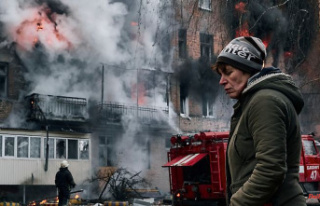The Schengen area, in which travel without controls is possible, is to be expanded. Croatia should succeed in joining. However, Austria has reservations about the admission of Romania and Bulgaria. Illegal border crossings via the Balkan route are given as the reason.
For the time being, the EU countries Romania and Bulgaria cannot hope to join the Schengen area without border controls. At the meeting of EU interior ministers in Brussels, Austria reiterated its veto against the inclusion, which requires unanimity. The Netherlands also have reservations about Bulgaria. EU Interior Commissioner Ylva Johansson, on the other hand, expects "full support" from the interior ministers for Croatia. The EU Commission had urged the member states to include all three states.
The Austrian Minister of the Interior, Gerhard Karner, said in Brussels that he would vote against the Schengen expansion to include Romania and Bulgaria. He justified this with the increasing number of migrants on the Balkan route. "This year we have over 100,000 illegal border crossings in Austria, 75 percent of which are not registered," said Karner. "It's proof that the system isn't working on many ends." Austria's Chancellor Karl Nehammer had already announced the veto on Tuesday at the Western Balkans summit in Albania.
Federal Minister of the Interior Nancy Faeser, like Federal Chancellor Olaf Scholz (both SPD), spoke out in favor of the admission of all three countries to the Schengen area. They had made "considerable progress," said Faeser. She wanted to talk about it again with her Austrian colleague.
According to the EU border protection agency Frontex from October, more than 106,000 people have irregularly entered the EU via the Balkan route since the beginning of the year, around 170 percent more than in the same period last year. This is the highest level since 2016.
In addition, the interior ministers are also discussing the additional refugees from Ukraine who are expected this winter because of the Russian war of aggression. Faeser said she would urge her EU colleagues to "better distribution in Europe". Many German municipalities are already complaining about overloading.












